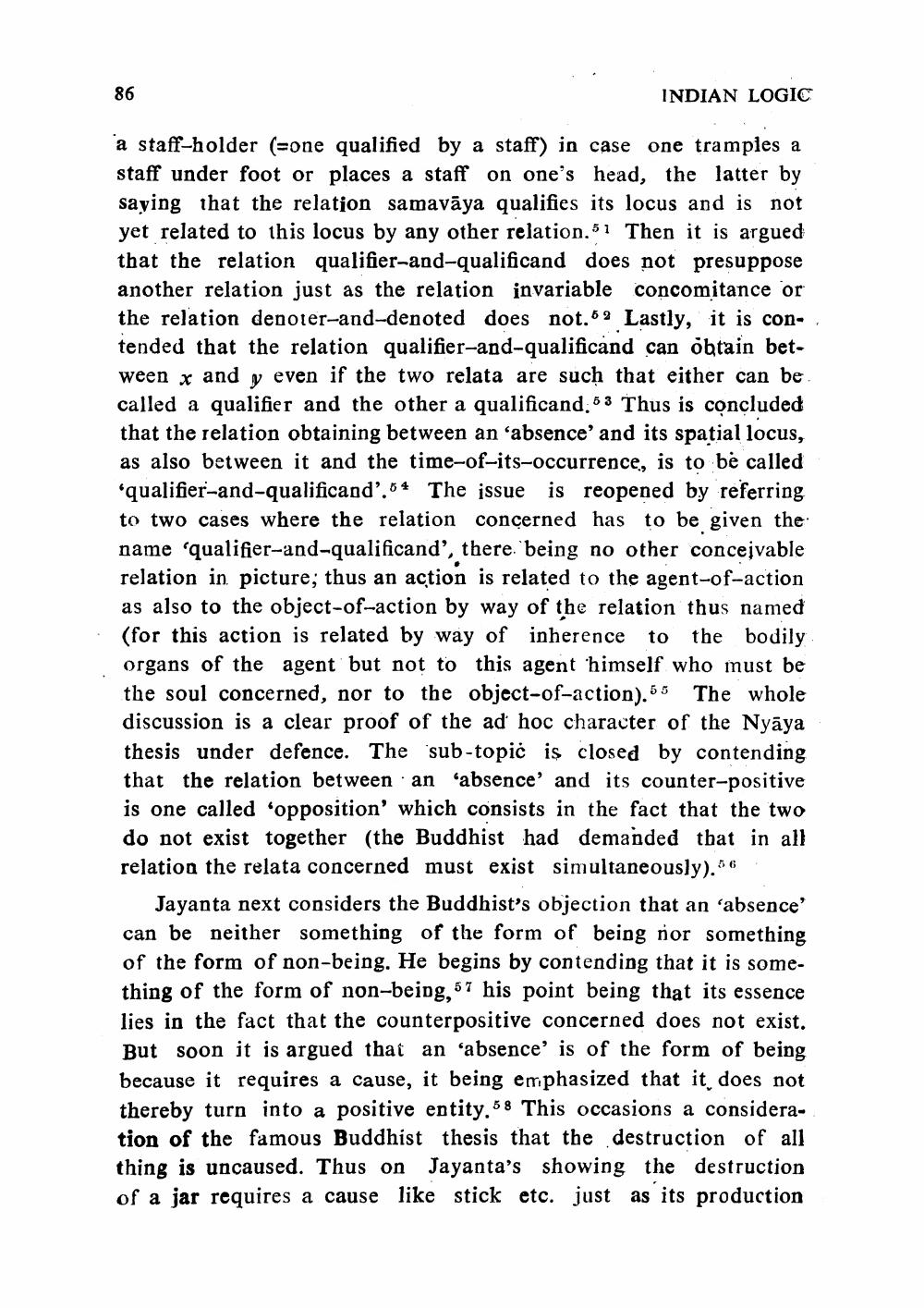________________
86
INDIAN LOGIC
a staff-holder (=one qualified by a staff) in case one tramples a staff under foot or places a staff on one's head, the latter by saying ihat the relation samavāya qualifies its locus and is not yet related to this locus by any other relation.51 Then it is argued that the relation qualifier-and-qualificand does not presuppose another relation just as the relation invariable concomitance or the relation denoter-and-denoted does not. 69 Lastly, it is con- , tended that the relation qualifier-and-qualificand can obtain between x and y even if the two relata are such that either can be called a qualifier and the other a qualificand: 53 Thus is concluded that the relation obtaining between an 'absence' and its spa
locus, as also between it and the time-of-its-occurrence, is to be called 'qualifier-and-qualificand'. 54 The issue is reopened by referring to two cases where the relation concerned has to be given the name 'qualifier-and-qualificand', there being no other conceivable relation in picture, thus an action is related to the agent-of-action as also to the object-of-action by way of the relation thus named (for this action is related by way of inherence to the bodily organs of the agent but not to this agent himself who must be the soul concerned, nor to the object-of-action).55 The whole discussion is a clear proof of the ad hoc character of the Nyāya thesis under defence. The 'sub-topic is closed by contending that the relation between an 'absence' and its counter-positive is one called 'opposition' which consists in the fact that the two do not exist together (the Buddhist had demanded that in all relation the relata concerned must exist simultaneously).56
Jayanta next considers the Buddhist's objection that an 'absence' can be neither something of the form of being nor something of the form of non-being. He begins by contending that it is something of the form of non-being, 57 his point being that its essence lies in the fact that the counterpositive concerned does not exist. But soon it is argued that an 'absence' is of the form of being because it requires a cause, it being emphasized that it does not thereby turn into a positive entity. 58 This occasions a consideration of the famous Buddhist thesis that the destruction of all thing is uncaused. Thus on Jayanta's showing the destruction of a jar requires a cause like stick etc. just as its production




